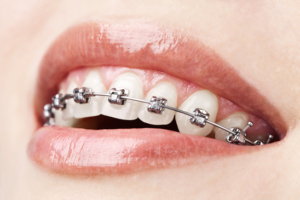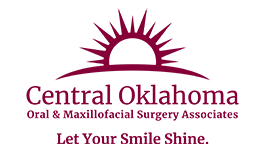15 Nov Do I need to have my wisdom teeth extracted before orthodontic treatment?
 If you are about to receive orthodontic treatment, your orthodontist may have recommended you to our oral surgeon for wisdom teeth removal. A tooth extraction is a procedure where an entire tooth is removed from the oral cavity to preserve oral health. Since wisdom teeth present a number of potential oral health complications, most dental professionals recommend their removal. Orthodontists typically prefer removing wisdom teeth before treatment because it creates extra space in the oral cavity to reposition the rest of one’s teeth. Following is some helpful information about wisdom teeth removal and how it can benefit you.
If you are about to receive orthodontic treatment, your orthodontist may have recommended you to our oral surgeon for wisdom teeth removal. A tooth extraction is a procedure where an entire tooth is removed from the oral cavity to preserve oral health. Since wisdom teeth present a number of potential oral health complications, most dental professionals recommend their removal. Orthodontists typically prefer removing wisdom teeth before treatment because it creates extra space in the oral cavity to reposition the rest of one’s teeth. Following is some helpful information about wisdom teeth removal and how it can benefit you.
Is a tooth extraction uncomfortable?
While a tooth extraction is a surgical procedure, our patients have pleasant experiences at our practice because we take all measures necessary to ensure comfort. Prior to one’s tooth extraction, nitrous oxide and local anesthetics are administered followed by sedating and analgesic prescription medication. This will allow our patients to rest comfortably during their procedures while we remove the roots and crowns of wisdom teeth.
After treatment, patients will be given post-operative instructions that will provide information on how to stay comfortable and heal as quickly as possible. For instance, liquid and soft foods are recommended after treatment to avoid irritating extraction sites while taking medication and icing the orofacial region can diminish discomfort and reduce swelling.
Why should wisdom teeth be removed?
Wisdom tooth retention can be problematic to oral health for various reasons and since these teeth are not necessary for ideal oral function, it is best to have them removed as soon as they begin to emerge. As a third set of molars, wisdom teeth can cause orthodontic issues such as malocclusions and crowding. Their presence greatly increases the risks for developing dental caries, gum disease, abscesses, and TMJ disorder.
For more information about wisdom teeth and your oral health, call us today to reserve a consultation! At your appointment, your oral surgeon will develop a treatment plan that works for you.
